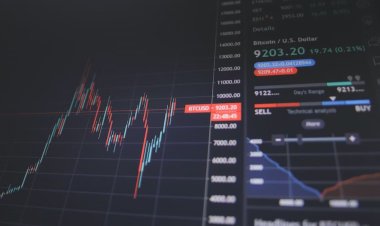The imminent crash of the US Dollar and how it impacts the world
Learn the potential implications of a US dollar crash on the global economy and how it could reshape financial landscapes worldwide. Stay informed.

The imminent crash of the US Dollar and how it impacts the world
The dollar was forewarned to fall for three main reasons: One, the current account deficit broadened further, reaching 3.3% of the gross domestic product in the second quarter of 2020 and 3.4% in the third quarter. Deficits reached their highest level since 2008.
There is a deterioration in domestic savings due to a rapidly growing federal budget deficit. Current-account deficits are needed to attract foreign capital. The drop in net domestic savings was the first in a decade. Second-quarter net domestic rates declined 3.8 percentage points to negative 0.9%, the largest quarterly decline ever. This will result in a further drop in domestic savings, which will push the current-account deficit even lower.
In 2023, will there be a recession?
As 2023 approaches, recession warnings are coming thick and fast. In recent years, billionaire businessman and banker Jamie Dimon has warned of an impending recession. Although he admits it is possible, Biden believes a recession is unlikely.
It's always predicted there'll be a recession, but so far it hasn't happened, the president told CNN. Almost 80% of CEOs predict a recession in the next year, according to KPMG's CEO survey. According to Dr. Doom, who correctly predicted the 2008 financial crisis, a recession is imminent. A recession can be survived by reading his book MegaThreats. Rebeca Grynspan told global leaders that action is needed now to prevent a global recession.
From a starting point, we've never achieved a soft landing, the same forecasters believe we can bring inflation down with a soft landing.
It is still possible for a more significant recession, despite persistent inflation. Further, there is a tight labor market and broadening inflation drivers. There have been dramatic changes in inflation psychology, with sellers increasingly willing to pass on cost increases to customers.
The recent inflation data is usually a factor in influencing future inflation expectations as well. It is widely believed that the Fed will move too slowly, resulting in a substantial real decline in the federal funds rate.
Inflation may fall somewhat from its 40-year high in March, but multiple factors will keep it elevated for some time. After the recession hits, core PCE inflation could remain in the 4-5% range into 2023. As an indicator of the Fed's misfortune, our US economics team developed a new measure we call the Fed's "misery index".
Currently, positive readings indicate the Fed needs to tighten. The effects of prolonged inflation will be economic, financial, and societal. It will only grow worse if we do not take action, causing further damage and requiring even greater action to resolve.
Despite all these recession warnings, know that recessions pass. Despite Roubini's predictions, we may not experience a severe recession. An annual savings account is recommended during recessions.



 admin
admin 










